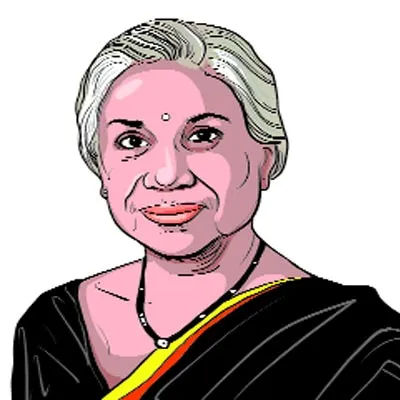Opinion ‘Homebound’ frames the prejudices we live with but refuse to confront
The real question is not whether Homebound wins an Oscar. It is whether we, as a society, are willing to face the dilemmas it lays bare.
 Homebound is India’s official entry to the Oscars.
Homebound is India’s official entry to the Oscars. India’s choice for the 2026 Oscars is Homebound, a powerful film centred on two childhood friends, a Dalit and a Muslim. Both share the same ambition: To escape discrimination and claim dignity by securing a government job.
I do not intend to review the film. Instead, I use it as a springboard to examine four enduring dilemmas in Indian society that are portrayed so starkly in the film. For the two friends at its centre, dignity is tied to the job of a police constable — a job that promises visible authority and, through this, escape from humiliation. Caste oppression and religious prejudice are seen as discriminatory barriers that a police uniform can easily dissolve.
The Muslim protagonist, Shoiab, who works as a peon at a company that sells water purifiers, shows extraordinary initiative by selling an unprecedented number of water purifiers in a single day. Two seniors offer him a sales position, despite his lack of formal qualifications, but another colleague demands his dismissal for daring to succeed and because one cannot “trust this community.” Later, at an office celebration after watching a cricket match against Pakistan, the inebriated group humiliates Shoiab; it is presumed that because he’s a Muslim, he is also a Pakistan sympathiser.
This sequence captures a harsh truth: Underdogs must not dare to shine because success will invite hostility. Even if things appear all right, there is no telling when they might explode. The dilemma is not about how merit can ever gain recognition, but whether overachieving marginalised groups — Dalits and Muslims — can survive the antipathy against them.
One of the film’s most searing moments revolves around names. When asked his caste, the Dalit protagonist, Chandan, claims a Brahmin lineage — Bhardwaj. He is grilled over this and humiliated. The message is clear: Dignity cannot be borrowed by adopting a name. Surnames are policed and withheld by those who control the narrative.
Surnames have always mattered. More than 70 years ago, Naresh Chandra — later the country’s Cabinet Secretary, Governor and Ambassador — dropped Saxena as his surname, signing his name simply as Naresh Chandra. Was this an act of quiet defiance against the upper-caste obsession with caste markers? My husband, too, dropped his family name after joining the civil service, and I adopted his caste-neutral surname — Chandra — without imagining it would matter. Yet, I was repeatedly pressed to disclose my maiden name: Once by a Union Health Minister, another time by my direct superior in the Defence Ministry, and later by a visiting delegation of Ayurveda aficionados when I was Secretary in the Government of India! Each time, the satisfaction lay in being able to pigeonhole my caste. Because, as a batchmate in the Uttar Pradesh cadre told me, everyone forms groups by caste — more to build a constituency which would support their promotions and placements, and even help extricate them out of office politics and bigger trouble, when needed. If that has since changed in UP, he did not know.
But recently, a young IAS officer told me, “UPSC should withhold candidates’ names from the interview board,” convinced that surnames still carry prejudice. It shows nothing has changed, and in modern India, identity continues to be policed through something as banal, yet decisive, as a surname.
It is easy to speak of wanting Dalits and other marginalised groups in positions of power. But before offering token gestures or slapdash solutions, one must recognise how deeply caste is entrenched. Homebound drives this home with devastating simplicity.
Another unforgettable sequence shows a Dalit woman, employed to cook school meals, being dismissed solely because of her caste. Her tormentors are warned that they could be arrested under the SC/ST Atrocities Act, but they openly scoff at the idea, knowing that the law will never be enforced. The sequence mirrors reality: Laws against caste discrimination exist, but only in name. Homebound forces us to see the distance between constitutional promises and lived experience. Rights on paper mean nothing without institutions being willing to enforce them.
After the intermission, the film shifts to the Covid-19 migration crisis when millions defied the lockdown to walk hundreds of miles to reach home. As shutters came down in factories and workplaces throughout the country, casual workers could not continue to live by eating the free meals that some governments distributed. Without any earnings, what could they send home except themselves?
Dragging himself home on foot, Chandan succumbs on the way, but astonishingly, he is not abandoned by Shoaib. Fear of contagion, religious differences, and having to face unending obstacles — these do not deter him. It is a reminder that there may be great indifference to human plight — something society is all too eager to forget — but at its core, humanity still survives.
Despite being the Film Federation of India’s unanimous Oscar choice, making headlines at Cannes, Toronto and Melbourne, Homebound has not stirred popular excitement in India. That it has not found mass traction is itself a commentary. We prefer cinema that reassures, not cinema that unsettles. The real question is not whether Homebound wins an Oscar. It is whether we, as a society, are willing to face the dilemmas it lays bare: The illusion that authority can erase stigma; the fragility of merit; the tyranny of names; the collapse of constitutional guarantees; and the memory of helpless migrants we cannot do without, but who we can easily forget. It is not just cinema — it is a mirror to prejudices we live with but refuse to confront.
The writer is former chief secretary, Delhi, and former secretary, Ministry of Health




